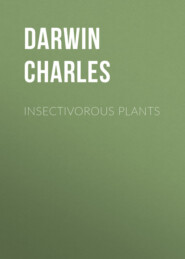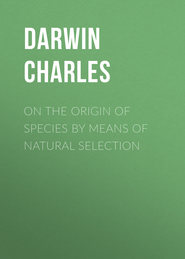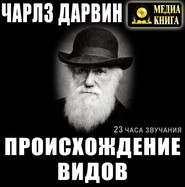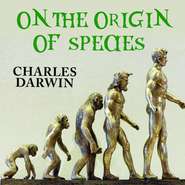По всем вопросам обращайтесь на: info@litportal.ru
(©) 2003-2025.
✖
Life and Letters of Charles Darwin — Volume 2
Настройки чтения
Размер шрифта
Высота строк
Поля
My dear Mr. Dyer,
I fear that you will think me a great bore, but I cannot resist telling you that I have just found out that the leaves of Pinguicula possess a beautifully adapted power of movement. Last night I put on a row of little flies near one edge of two YOUNGISH leaves; and after 14 hours these edges are beautifully folded over so as to clasp the flies, thus bringing the glands into contact with the upper surfaces of the flies, and they are now secreting copiously above and below the flies and no doubt absorbing. The acid secretion has run down the channelled edge and has collected in the spoon-shaped extremity, where no doubt the glands are absorbing the delicious soup. The leaf on one side looks just like the helix of a human ear, if you were to stuff flies within the fold. Yours most sincerely,
CH. DARWIN.
CHARLES DARWIN TO ASA GRAY. Down, June 3 [1874].
... I am now hard at work getting my book on Drosera & Co. ready for the printers, but it will take some time, for I am always finding out new points to observe. I think you will be interested by my observations on the digestive process in Drosera; the secretion contains an acid of the acetic series, and some ferment closely analogous to, but not identical with, pepsin; for I have been making a long series of comparative trials. No human being will believe what I shall publish about the smallness of the doses of phosphate of ammonia which act.
... I began reading the Madagascar squib (A description of a carnivorous plant supposed to subsist on human beings.) quite gravely, and when I found it stated that Felis and Bos inhabited Madagascar, I thought it was a false story, and did not perceive it was a hoax till I came to the woman...
CHARLES DARWIN TO F.C. DONDERS. (Professor Donders, the well-known physiologist of Utrecht.) Down, July 7, 1874.
My dear Professor Donders,
My son George writes to me that he has seen you, and that you have been very kind to him, for which I return to you my cordial thanks. He tells me on your authority, of a fact which interests me in the highest degree, and which I much wish to be allowed to quote. It relates to the action of one millionth of a grain of atropine on the eye. Now will you be so kind, whenever you can find a little leisure, to tell me whether you yourself have observed this fact, or believe it on good authority. I also wish to know what proportion by weight the atropine bore to the water solution, and how much of the solution was applied to the eye. The reason why I am so anxious on this head is that it gives some support to certain facts repeatedly observed by me with respect to the action of phosphate of ammonia on Drosera. The 1/4000000 of a grain absorbed by a gland clearly makes the tentacle which bears this gland become inflected; and I am fully convinced that 1/20000000 of a grain of the crystallised salt (i.e. containing about one-third of its weight of water of crystallisation) does the same. Now I am quite unhappy at the thought of having to publish such a statement. It will be of great value to me to be able to give any analogous facts in support. The case of Drosera is all the more interesting as the absorption of the salt or any other stimulant applied to the gland causes it to transmit a motor influence to the base of the tentacle which bears the gland.
Pray forgive me for troubling you, and do not trouble yourself to answer this until your health is fully re-established.
Pray believe me, Yours very sincerely, CHARLES DARWIN.
[During the summer of 1874 he was at work on the genus Utricularia, and he wrote (July 16th) to Sir J.D. Hooker giving some account of the progress of his work: —
"I am rather glad you have not been able to send Utricularia, for the common species has driven F. and me almost mad. The structure is MOST complex. The bladders catch a multitude of Entomostraca, and larvae of insects. The mechanism for capture is excellent. But there is much that we cannot understand. From what I have seen to-day, I strongly suspect that it is necrophagous, i.e. that it cannot digest, but absorbs decaying matter."
He was indebted to Lady Dorothy Nevill for specimens of the curious Utricularia montana, which is not aquatic like the European species, but grows among the moss and debris on the branches of trees. To this species the following letter refers:]
CHARLES DARWIN TO LADY DOROTHY NEVILL. Down September 18 [1874].
Dear Lady Dorothy Nevill,
I am so much obliged to you. I was so convinced that the bladders were with the leaves that I never thought of removing the moss, and this was very stupid of me. The great solid bladder-like swellings almost on the surface are wonderful objects, but are not the true bladders. These I found on the roots near the surface, and down to a depth of two inches in the sand. They are as transparent as glass, from 1/20 to 1/100 of an inch in size, and hollow. They have all the important points of structure of the bladders of the floating English species, and I felt confident I should find captured prey. And so I have to my delight in two bladders, with clear proof that they had absorbed food from the decaying mass. For Utricularia is a carrion-feeder, and not strictly carnivorous like Drosera.
The great solid bladder-like bodies, I believe, are reservoirs of water like a camel's stomach. As soon as I have made a few more observations, I mean to be so cruel as to give your plant no water, and observe whether the great bladders shrink and contain air instead of water; I shall then also wash all earth from all roots, and see whether there are true bladders for capturing subterranean insects down to the very bottom of the pot. Now shall you think me very greedy, if I say that supposing the species is not very precious, and you have several, will you give me one more plant, and if so, please to send it to "Orpington Station, S.E.R., to be forwarded by foot messenger."
I have hardly ever enjoyed a day more in my life than I have this day's work; and this I owe to your Ladyship's great kindness.
The seeds are very curious monsters; I fancy of some plant allied to Medicago, but I will show them to Dr. Hooker.
Your ladyship's very gratefully, CH. DARWIN.
CHARLES DARWIN TO J.D. HOOKER. Down, September 30, 1874.
My dear H.,
Your magnificent present of Aldrovanda has arrived quite safe. I have enjoyed greatly a good look at the shut leaves, one of which I cut open. It is an aquatic Dionaea, which has acquired some structures identical with those of Utricularia!
If the leaves open and I can transfer them open under the microscope, I will try some experiments, for mortal man cannot resist the temptation. If I cannot transfer, I will do nothing, for otherwise it would require hundreds of leaves.
You are a good man to give me such pleasure.
Yours affectionately, C. DARWIN.
[The manuscript of 'Insectivorous Plants' was finished in March 1875. He seems to have been more than usually oppressed by the writing of this book, thus he wrote to Sir J.D. Hooker in February: —
"You ask about my book, and all that I can say is that I am ready to commit suicide; I thought it was decently written, but find so much wants rewriting, that it will not be ready to go to printers for two months, and will then make a confoundedly big book. Murray will say that it is no use publishing in the middle of summer, so I do not know what will be the upshot; but I begin to think that every one who publishes a book is a fool."
The book was published on July 2nd, 1875, and 2700 copies were sold out of the edition of 3000.]
CHAPTER 2.XIV. — THE 'POWER OF MOVEMENT IN PLANTS.'
1880
[The few sentences in the autobiographical chapter give with sufficient clearness the connection between the 'Power of Movement,' and one of the author's earlier books, that on 'Climbing Plants.' The central idea of the book is that the movements of plants in relation to light, gravitation, etc., are modifications of a spontaneous tendency to revolve or circumnutate, which is widely inherent in the growing parts of plants. This conception has not been generally adopted, and has not taken a place among the canons of orthodox physiology. The book has been treated by Professor Sachs with a few words of professorial contempt; and by Professor Wiesner it has been honoured by careful and generously expressed criticism.
Mr. Thiselton Dyer ('Charles Darwin' ('Nature' Series), page 41.) has well said: "Whether this masterly conception of the unity of what has hitherto seemed a chaos of unrelated phenomena will be sustained, time alone will show. But no one can doubt the importance of what Mr. Darwin has done, in showing that for the future the phenomena of plant movement can and indeed must be studied from a single point of view."
The work was begun in the summer of 1877, after the publication of 'Different Forms of Flowers,' and by the autumn his enthusiasm for the subject was thoroughly established, and he wrote to Mr. Dyer: "I am all on fire at the work." At this time he was studying the movements of cotyledons, in which the sleep of plants is to be observed in its simplest form; in the following spring he was trying to discover what useful purpose these sleep-movements could serve, and wrote to Sir Joseph Hooker (March 25th, 1878): —
"I think we have PROVED that the sleep of plants is to lessen the injury to the leaves from radiation. This has interested me much, and has cost us great labour, as it has been a problem since the time of Linnaeus. But we have killed or badly injured a multitude of plants: N.B. — Oxalis carnosa was most valuable, but last night was killed."
His letters of this period do not give any connected account of the progress of the work. The two following are given as being characteristic of the author:]
CHARLES DARWIN TO W. THISELTON DYER. Down, June 2, 1878.
My dear Dyer,
I remember saying that I should die a disgraced man if I did not observe a seedling Cactus and Cycas, and you have saved me from this horrible fate, as they move splendidly and normally. But I have two questions to ask: the Cycas observed was a huge seed in a broad and very shallow pot with cocoa-nut fibre as I suppose. It was named only Cycas. Was it Cycas pectinata? I suppose that I cannot be wrong in believing that what first appears above ground is a true leaf, for I can see no stem or axis. Lastly, you may remember that I said that we could not raise Opuntia nigricans; now I must confess to a piece of stupidity; one did come up, but my gardener and self stared at it, and concluded that it could not be a seedling Opuntia, but now that I have seen one of O. basilaris, I am sure it was; I observed it only casually, and saw movements, which makes me wish to observe carefully another. If you have any fruit, will Mr. Lynch (Mr. R.I. Lynch, now Curator of the Botanic Garden at Cambridge was at this time in the Royal Gardens, Kew.) be so kind as to send one more?
I am working away like a slave at radicles [roots] and at movements of true leaves, for I have pretty well done with cotyledons...
That was an EXCELLENT letter about the Gardens (This refers to an attempt to induce the Government to open the Royal Gardens at Kew in the morning.): I had hoped that the agitation was over. Politicians are a poor truckling lot, for [they] must see the wretched effects of keeping the gardens open all day long.
Your ever troublesome friend, CH. DARWIN.
CHARLES DARWIN TO W. THISELTON DYER. 4 Bryanston St., Portman Square, November 21 [1878].
My dear Dyer,
I must thank you for all the wonderful trouble which you have taken about the seeds of Impatiens, and on scores of other occasions. It in truth makes me feel ashamed of myself, and I cannot help thinking: "Oh Lord, when he sees our book he will cry out, is this all for which I have helped so much!" In seriousness, I hope that we have made out some points, but I fear that we have done very little for the labour which we have expended on our work. We are here for a week for a little rest, which I needed.
If I remember right, November 30th, is the anniversary at the Royal, and I fear Sir Joseph must be almost at the last gasp. I shall be glad when he is no longer President.
Yours very sincerely, CH. DARWIN.
[In the spring of the following year, 1879. When he was engaged in putting his results together, he wrote somewhat despondingly to Mr. Dyer: "I am overwhelmed with my notes, and almost too old to undertake the job which I have in hand — i.e. movements of all kinds. Yet it is worse to be idle."
Later on in the year, when the work was approaching completion, he wrote to Prof. Carus (July 17, 1879), with respect to a translation: —
















